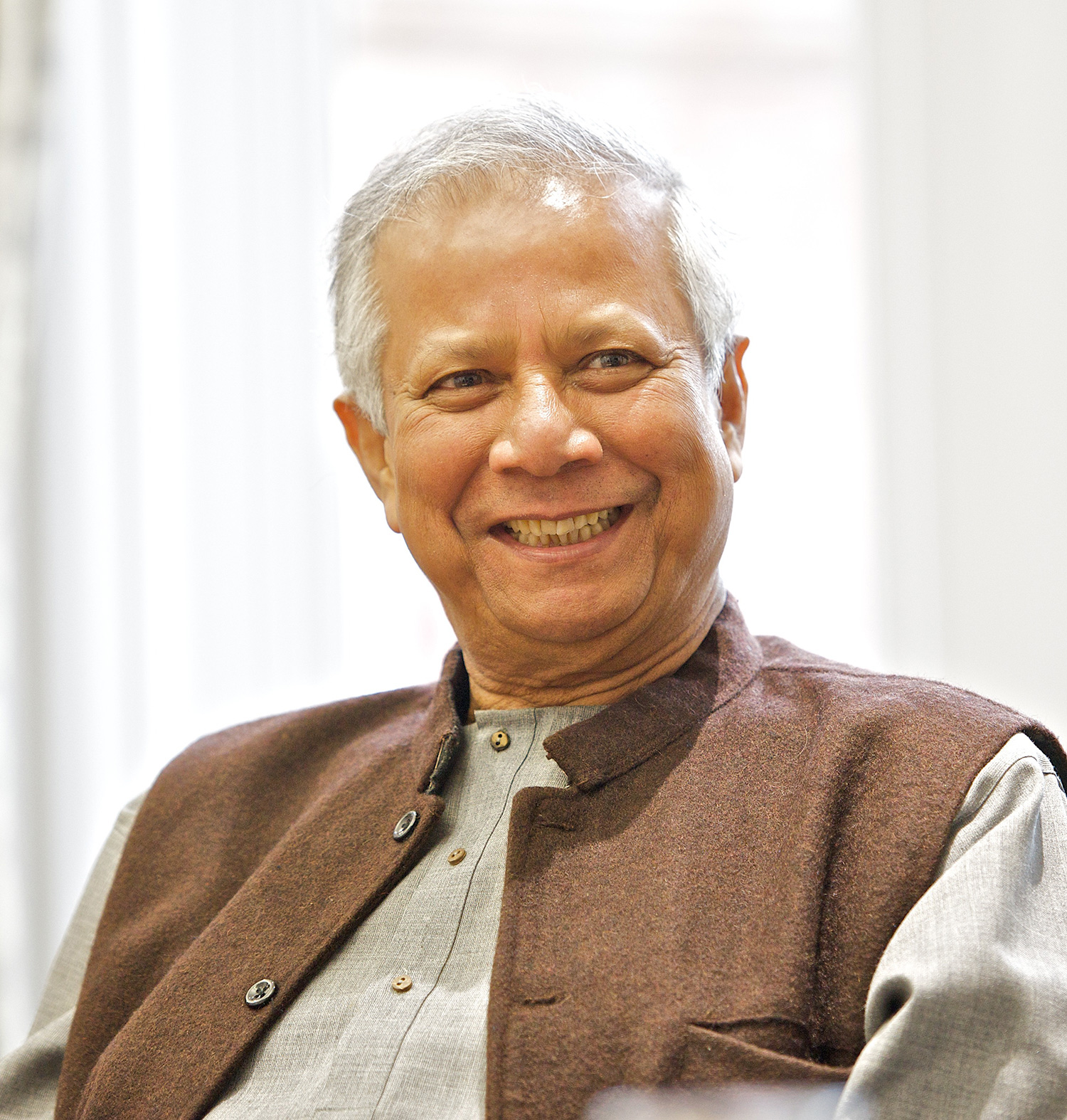Issue:
November 2021
Partnership between Nobel laureate Muhammad Yunus, Yoshimoto Kogyo focuses on Okinawa’s revival

In 2018, the major Japanese entertainment group Yoshimoto Kogyo launched a social business project in Okinawa prefecture with the 2006 Nobel Peace Prize winner Professor Muhammad Yunus.
That was almost a year before the world came to a virtual standstill amid the rapid spread of the coronavirus. Against that backdrop, the timing of the joint venture was hardly ideal.
But despite being confronted with unforeseen obstacles right from the beginning, the project is now on a firm footing. To date, it has created more than 40 small social business ventures in Okinawa, thanks to the efforts of Yoshimoto comedians throughout Japan.
It is significant that the company, Yunus-Yoshimoto Social Action, chose Okinawa as the launching pad for a new kind of social business in Japan. Although Yunus was not instrumental in selecting the location, he is in total agreement with his Japanese partners that the prefecture is the perfect place to address deeply rooted social problems.
At a recent FCCJ press conference, Yunus noted that Okinawa stood at the bottom of many indicators of economic and social development. Speaking remotely, he cited his native Bangladesh as a comparison, given that the country faces problems not dissimilar to those in Okinawa.
Yunus and other speakers listed depopulation in rural areas and vanishing folk crafts as two major concerns that the company planned to address using the expertise and experience of Yunus and his team.
Hiroshi Osaki, representative director of the Yunus-Yoshimoto Social Action group, said Yoshimoto comedians had already relocated to farming communities in Okinawa, where they were using the “power of laughter” to bring about social change.
He noted that 41 municipalities in Okinawa had joined the project, adding that he hoped more would follow in the months ahead now that Covid-19 restrictions were being eased.
The Yunus-Yoshimoto joint initiative is now aiming to utilize some of Japan’s huge reserves of dormant deposits in bank accounts, according to Hitoshi Suzuki of the Japan Network for Public Interest Activities.
Speaking remotely, Suzuki said a portion of about ¥70 billion in dormant deposits that accumulate in Japan every year would be used to help achieve the venture’s goal of turning Okinawa into a social business island.
Like all other social business projects, the Okinawa initiative will prioritize Yunus’ three “zero” concepts.
He is confident that as a social business island, Okinawa will spearhead the global population’s desire to achieve zero carbon emissions, zero wealth concentration and zero unemployment.
“The world can no longer allow the randomly unchecked process of global warming,” he said, adding that it should no longer tolerate the “absurdity” of concentrating 99% of the world’s wealth in the hands of 1% of the population.
Yunus reminded the FCCJ audience that even as his initiatives to address inequality gained momentum, a new form of discrimination had emerged in the distribution of Covid-19 vaccines.
While the 10 richest nations stockpile the lion’s share of vaccines, developing countries are being left behind. This is happening despite such projects as the World Health Organization’s COVAX initiative, and is a stark reminder that solving global problems such as the coronavirus pandemic will remain elusive without the fair distribution of Covid-19 vaccines and treatments.
Monzurul Huq is Tokyo bureau chief of Prothom Alo, the leading national daily of Bangladesh. He joined the FCCJ more than two decades ago and was president in 2009-2010.

